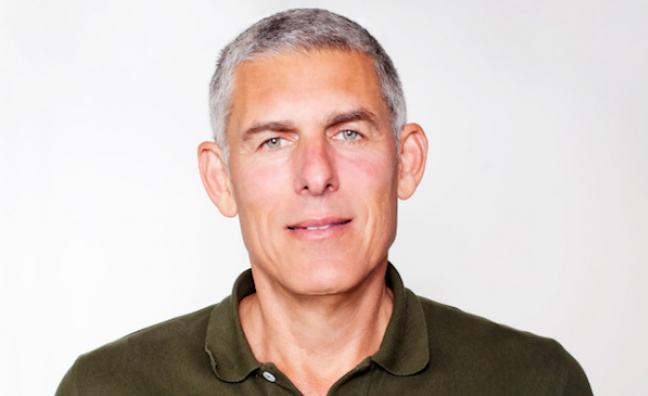YouTube's global head of music Lyor Cohen has told Music Week about how the company's "twin-engine growth story" is fuelling its bid to become the industry's number one revenue generator.
Earlier this month, YouTube announced it has paid more than $4 billion (£2.8bn) to the music industry in the last year and added a record number of paid subscribers in Q1 2021.
Cohen, who joined the firm in 2016, outlined the firm's long-term goal to overhaul Spotify as the leading financial contributor to the business.
“We’re a clear number two," said Cohen, speaking in the latest issue of Music Week. "Over the last 12 months, we’ve paid over $4 billion to the music industry and what’s exciting is the twin-engine growth story that we have now layered into our advertising business, where people pay with their eyeballs.
“I think the industry was drunk on subscription. That is hugely valuable and very important, but the music industry was in tough times and I think they over-indexed in that one way to monetise. On a global basis, in any mature media industry, it’s a mix between advertising and subscription.”
We do not believe a per-stream rate is a good metric to measure YouTube's pay outs to the industry
Lyor Cohen, YouTube Music
Back in February, Katie Oyama, director, government affairs & public policy at YouTube, told MPs at the DCMS streaming inquiry that the firm had sent out over $12 billion to the music industry so far.
Cohen has long claimed that YouTube’s advertising revenue should be just as important to the music industry as its streaming revenues.
“Listen, we want to help artists build, connect with, and monetise their fanbase," he said. "We do not believe a per-stream rate is a good metric to measure YouTube’s pay outs to the industry. Per-stream rates assume all streams are equal but in reality, video streams are not equivalent to audio streams.
"The amount an artist makes on YouTube depends on several things, including their contracts with record labels and music publishers. We pay rights-holders the majority of the revenue generation on their music content paying rates that are on par with the rest of the industry across both the advertising and subscription businesses. Our business is built on a revenue share model, and overall we’ve paid out more than $12bn to the music industry, including $4bn over the last 12 months.”
The former Def Jam boss also discussed his impending relocation from his native US to London.
"I’ve always had a beautiful relationship with the British music scene," he said. "Before I had my own crib, I had an office in London and I just loved the scene. I loved the diversity; I loved the bravery of the British music scene.
“I think that I can be helpful in communicating to the industry the power of YouTube – and the opportunity they have by partnering with YouTube. We’ve been hugely transactional: we come to sign the industry’s licences and then we go build some products and come back in three years. I want to shift it from transactional to partnership. In fact, I would love their input on products that we could build that could be more effective for them in signing, developing and bringing to market their artists.
"I want to go inside of the bloodstream of the industry to articulate that, even though our platform may be more complex than others, it’s much bigger, much more powerful and has a bigger reach – and that it has the opportunity to provide our partners with fame and fortune."
Click here to read the full Music Week Interview with Cohen.











